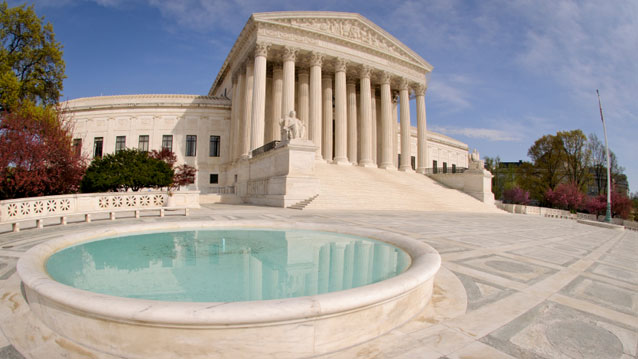EVANSTON, Ill. --- Northwestern University has joined with nine other leading institutions to file an amicus brief with the U.S. Supreme Court in Fisher v. the University of Texas at Austin in support of the university, which considers an applicant’s race among many other factors in its undergraduate admissions process.
Dozens of colleges and universities and educational associations around the country also have filed amicus briefs to make the case for diversity in higher education.
“Admission policies are critical instruments for achieving our educational mission,” said Northwestern University President Morton Schapiro. “In this Supreme Court deliberation, it is important that Northwestern be ‘on the record’ about the connection between these policies and our mission to pursue diversity and institutional excellence.”
The group of amici contends that each institution’s right to define its mission and the means by which to achieve it is at the heart of academic freedom, which is grounded in the First Amendment. One of the “four essential freedoms” of a university as previously defined by the Supreme Court is the right to determine for itself on academic grounds who may teach, what may be taught, how it shall be taught and who may be admitted to study.
“Along with the other private institutions with whom we have joined, we support the University of Texas in this case before the Supreme Court because we have a compelling interest in a diverse student body,” said Thomas G. Cline, vice president and general counsel at Northwestern. “A diverse student body is essential to the fulfillment of our educational mission.”
Abigail Fisher, the plaintiff, argues that the University of Texas’s “Top 10” rule, under which the top 10 percent of every high school graduating class in Texas is offered admission to the university, has created the diverse student body approved by the Supreme Court in 2003 in a case involving the University of Michigan Law School (Grutter v. Bollinger). The University of Texas, therefore, has no constitutional right to consider race as a factor in admissions decisions at all, Fisher argues.
“We respond to that in several ways,” Cline said. “First, we contend that it is not enough to look simply at aggregate numbers. If diverse viewpoints and experiences are important, then diversity must exist in classrooms and fields of study and not just across the student body, as Fisher claims.
“This is particularly true in the STEM fields, where research demonstrates a lack of diversity and in which diversity must exist for the United States to remain competitive,” Cline said. “We also argue that even if the ‘Top 10’ rule is sufficient at the University of Texas, it can’t work for smaller, highly selective private schools like ours that draw students from around the country and the world.”
In the 1978 case of Regents of the University of California v. Bakke and again in the Grutter case, the Supreme Court said that race may not be the sole determinant, but it may be used as a factor in a holistic review of each candidate’s admissions evaluation.
Northwestern and its peer group argue in their brief that they have been doing exactly what the Supreme Court has told them to do and that such a holistic review is the only way to accomplish their diversity goals and advance their missions.
“If we’re doing what we’ve been told to do in earlier cases, then this holistic review is not only constitutionally sound, but an exercise of our academic freedom, and it should be given deference by the court,” said Cline. “In fact, courts couldn’t make the admissions decisions in our stead because of the manner in which our institutions balance multiple factors in each decision.”
Northwestern’s brief was filed jointly with the California Institute of Technology, Carnegie Mellon University, Case Western University, Emory University, George Washington University, Rice University, Tulane University, the University of Rochester and Washington University in St. Louis.
The Supreme Court is scheduled to hear oral arguments Oct. 10.


